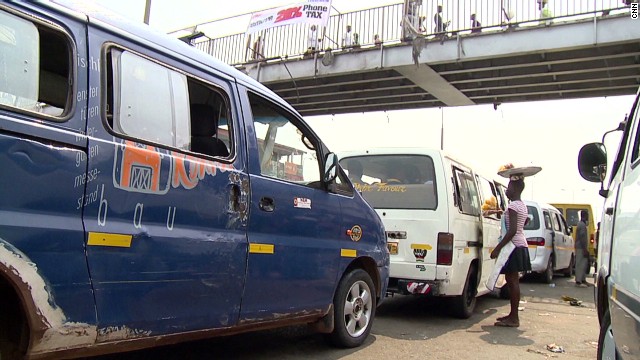Don’t fool yourself – The main way for transportation in Ghana is currently Trotros and Taxis. Yes, Uber has made headway when it came into the market two years ago. Now Taxify is also here trying to be the alternative.
Of course, there seem to be
On any day, you just have to observe most of the major bus stops in the city: They are filled with people standing and waiting for a

The Ghana government has tried in the past to make public transportation better for citizens. One such project was a Bus Rapid Transportation system. Although it started out with a lot of buzz and fanfare, it appears to have dwindled and has instead become a “regular” bus transportation system.

So, at the moment, the best and cheapest alternative is the use of trotros.
Kenya has faced a similar situation with their transportation system with Matau buses but now they are currently piloting new alternatives. Little, a ride-hailing app backed by Kenya’s largest mobile operator, Safaricom and Swvl, a Cairo-headquartered bus transportation service

It would interesting to see if this would work in Kenya but if similar startups were to try and test the same model in the city of Accra, would they succeed or just fall at the wayside?
Infrastructure And Design Problems
A friend who once visited the city of Accra once commented on how “narrow” the streets were and how small the roads were.
Narrow streets and small roads are definitely a contributor to the
There doesn’t seem to have been any attention paid to factors such as the growing population of the city and citizens’ purchase of personal vehicles in the absence of a good transportation system.
When Will The Ghana Transportation System Evolve?
The current transportation system in Ghana *works
Taxi drivers still bargain with passengers for fares when this could be resolved with the implementation of taxi meters.

A Bus Rapid Transportation system could have been a great alternative but a seemingly hasty launch, poor planning in regards to the
Currently, there are Metro Mass Buses but that company also faces challenges of poor management and poor maintenance culture which frequently requires purchases of buses.
So when will Ghana’s transportation system “evolve” into something that seems more 21st century? It’s hard to say. The lack of alternatives for mass transportation will always play a key in adoption.
Although a service like Swvl looks interesting, it may suffer the same fate as other
Better infrastructure and a modern “










